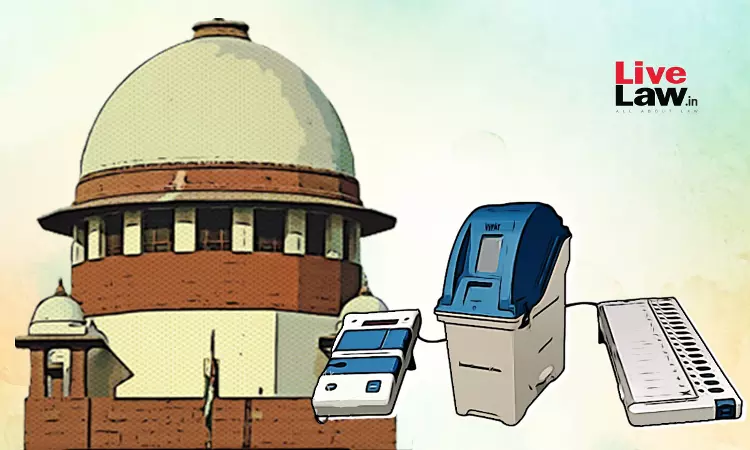Supreme Court Reserves Judgment On Pleas For 100% EVM-VVPAT Verification
Debby Jain
18 April 2024 4:42 PM IST

Next Story
18 April 2024 4:42 PM IST
The Supreme Court on Thursday (April 18) reserved judgment on a batch of petitions seeking 100% verification of Electronic Voting Machine (EVM) data with Voter-Verifiable Paper Audit trail (VVPAT).After a day-long hearing today, which was preceded by a half-day hearing on April 16, the Bench of Justices Sanjiv Khanna and Dipankar Datta reserved the verdict on the petitions filed by...
